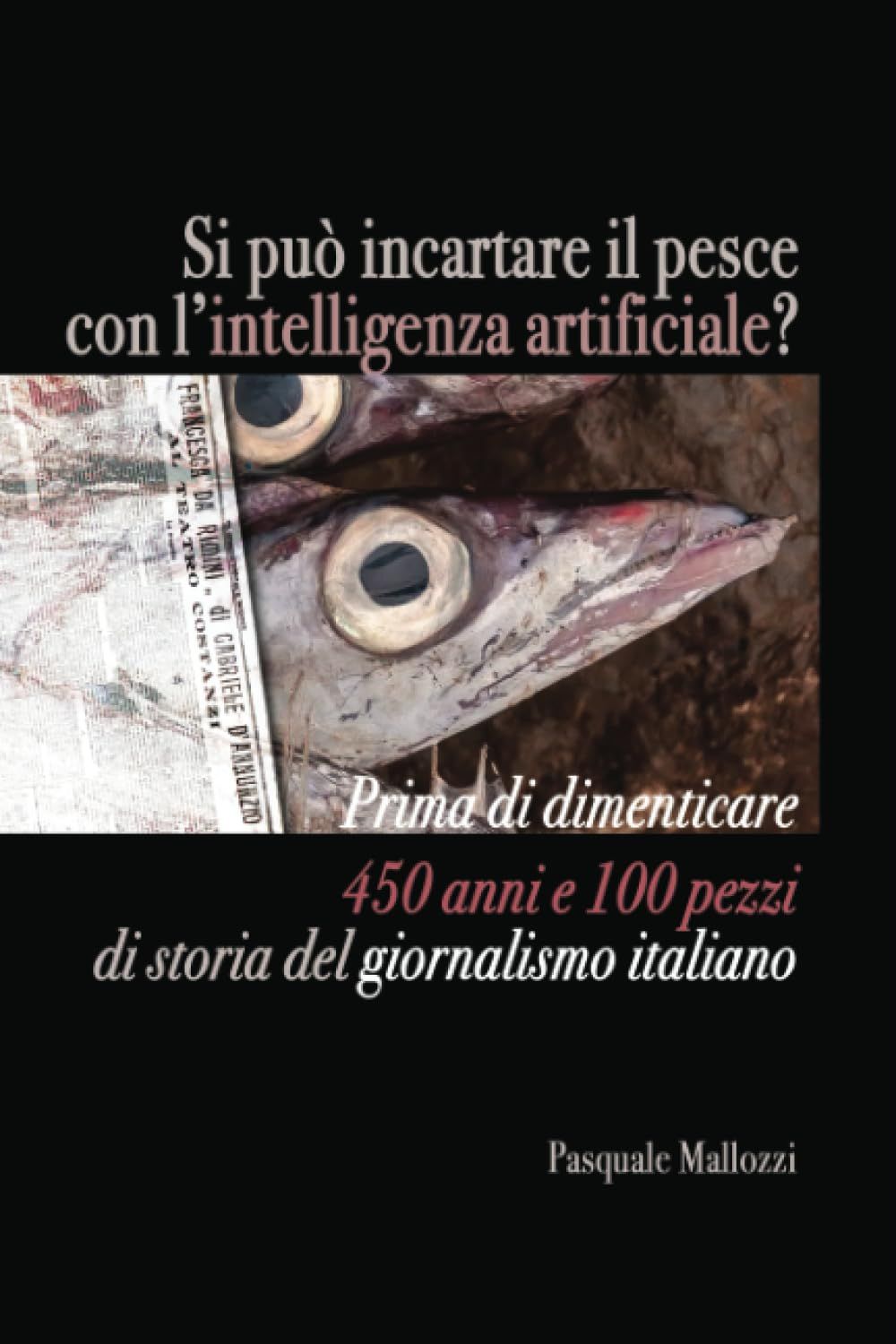Stop the machines, let's replay the first edition. The news is huge: artificial intelligence will not kill journalists. The emotional impact that might have pervaded the editorial office of a newspaper around midnight some fifty years ago, is not very different from that which a conversation with Pasquale Mallozzi, a scholar of communication processes and author of the book “Si può incartare il pesce con l’intelligenza artificiale?”, procures today.

Mallozzi, former professor of Sociology of Communication at La Sapienza University in Rome, currently holds the same position at Cusano University. His essay, in addition to collecting 100 key pieces, frames the history of 450 years of journalism, a history that we are already forgetting and to which AI (the acronym for artificial intelligence) could give the coup de grace. And it brings into sharp focus what may be, in the field of communication, the developments in journalism in the light of the current revolution. Because it is now a shared opinion in the scientific community that we are facing a caesura point. The irruption of AI will radically change the world, just as it happened two centuries ago with the industrial revolution, the transition from the stagecoach to the train, from the hoe to the tractor. And nothing will ever be the same again.

Unlike many of his colleagues, Mallozzi does not fuel the climate of alarm that inflames the debate, but broadens the horizon as much as possible in search of the opportunities that the epochal change we are preparing to experience can generate. «The starting point is that artificial intelligence is in any case a tool created by man and deployed in the service of man».
Isn't there a risk of it getting out of hand?
The risk is there today as it was in the past. In this case, the way in which artificial intelligence acts is, to some extent, a guarantee.
Why?
For a simple reason. AI proceeds probabilistically, statistically, not logically. And given the enormous amount of information on which it relies, it can only generate output that is the fruit of all the notions that man has collected and entered into the network.
Meaning?
Let me give you an example. A boy at the end of a course of study will construct an argument based on the notions he has learned. What does the machine do? It processes the information in its possession and orders it on the basis of what is statistically most probable.
But what if the information is wrong?
If we ask it to elaborate rubbish, it can do so. He can do it if the question (the prompt) is not well formulated, he can do it because he tries in the first instance anyway to please us, to give us satisfaction. It is obliging. It can also produce shenanigans if the material with which it was instructed contained shenanigans. But this, paradoxically, is fortunate.
Visualizza questo post su Instagram
A fortune?
Yes, because it will always push for human control that reasons ethically and philosophically better than AI. We will be forced to do so.
So the risk of manipulation exists.
Manipulation is human, not machine. It can be enacted, just as it could have been enacted before.
Be patient: if the machine is able to process a report in an accomplished manner, what are journalists for?
The machine cannot find news. Sure it can draft a press release, perhaps better than a journalist. But is a press release a journalistic product?.
You tell us.
I would say no. So one has to distinguish.
Explain.
Distinguish functions. It is clear that everything related to facts, emotions, states of mind, what manifests itself on a sensory level can only be translated into its various forms by a journalist. If it is a matter of putting in order a series of service information, of processing statistics, it is obvious that AI can do it in a much shorter time. Perhaps by simultaneously translating it into 15 languages.
So artificial intelligence is simply a tool.
Exactly. A tool that can be very useful if put at the service of the journalist. Which at this point can return to its function by coming out of the corner into which it had been pushed by the advent of social media and disintermediation.
Disintermediation?
Before, journalists were the only ones with access to sources. So information had to come through them. Then came Twitter, Facebook, Instagram, TikTok. And sources started to communicate directly.
But what about now?
Now we are at a turning point. And journalists have a chance to reclaim their role, that of reporting the news, uncovering the mischief, finding the error, breaking the shackles, searching for the truth.
Visualizza questo post su Instagram
With the help of artificial intelligence.
By using AI intelligently, by recovering a sense of journalism that has been lost in recent years partly due to embarrassment and allergy towards innovation and technology. This is a historic opportunity.
Illustration by Gloria Dozio - Acrimònia Studios
Image Pasquale Mallozzi
.jpg)